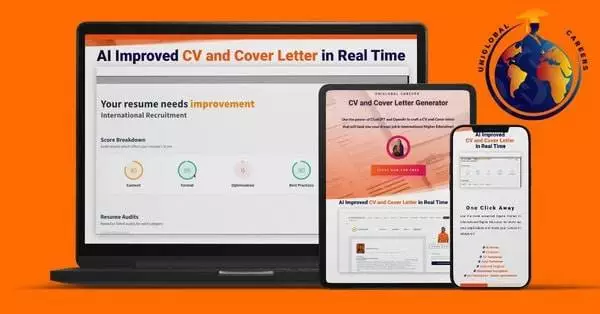Artificial intelligence (AI) is rapidly transforming the research landscape, offering new ways for researchers to tackle complex problems, generate insights, and collaborate more effectively. By harnessing the power of machine learning, natural language processing, and other AI technologies, research teams can accelerate their work, uncover hidden patterns and relationships, and gain new insights into a variety of fields.
Understanding AI in Research Collaborations
In order to understand how AI is transforming research collaborations, it’s important to first define what exactly we mean by “artificial intelligence.” Put simply, AI refers to software and algorithms that are designed to perform tasks that typically require human intelligence, such as recognizing patterns, understanding natural language, making predictions, and identifying anomalies in data sets.
AI can be applied to a wide range of research tasks, from data analysis and interpretation to hypothesis generation and experimental design. By augmenting researchers’ own cognitive abilities, AI technologies are helping to unlock new insights and accelerate the pace of discovery across a wide range of fields.
Defining Artificial Intelligence
There are several different types of AI, each with its own strengths and limitations. For example, rule-based systems are designed to follow predefined rules and logic to solve problems, while machine learning algorithms use statistical techniques to identify patterns in data sets and generate predictions. Natural language processing (NLP) algorithms are used to analyze and interpret human language, while computer vision systems are designed to recognize patterns and objects in images or videos.
One of the most exciting aspects of AI is its ability to learn and adapt over time. This means that as researchers continue to work with AI technologies, they can refine and improve the algorithms to make them even more effective and efficient.
The Role of AI in Research
AI technologies are becoming increasingly important in research collaborations, as they offer a range of benefits over traditional approaches. For example, AI can help researchers to gain new insights into complex problems by analyzing large data sets and identifying hidden patterns and relationships. AI can also be used to reduce the risk of human error, improve the accuracy and efficiency of research tasks, and streamline the research process by automating repetitive tasks.
One of the key advantages of AI in research collaborations is its ability to analyze and interpret large amounts of data quickly and accurately. This can be particularly useful in fields such as genomics and drug discovery, where researchers are dealing with vast amounts of complex data that would be difficult or impossible to analyze manually.
Another important role for AI in research collaborations is in hypothesis generation. By analyzing data sets and identifying patterns and relationships, AI algorithms can help researchers to generate new hypotheses and test them more effectively. This can lead to new discoveries and breakthroughs that might not have been possible using traditional research methods.
Finally, AI can also play a valuable role in experimental design. By simulating experiments and predicting outcomes, AI algorithms can help researchers to design more effective experiments and reduce the risk of costly or time-consuming mistakes.
Overall, the use of AI in research collaborations is transforming the way that researchers work and helping to unlock new insights and discoveries across a wide range of fields. As AI technologies continue to evolve and improve, we can expect to see even more exciting developments in the years to come.
Enhancing Data Analysis and Interpretation
One of the most powerful applications of AI in research is in the field of data analysis and interpretation. By using machine learning algorithms and other AI techniques, researchers can gain new insights into complex data sets, identify patterns and trends, and generate new hypotheses for further investigation.

AI has revolutionized the field of data analysis by providing researchers with a powerful tool to analyze and interpret data. With the ability to process large amounts of data quickly and accurately, AI has become an essential tool for researchers across a wide range of disciplines.
Improved Accuracy and Efficiency
One of the key advantages of using AI for data analysis is that it can greatly improve the accuracy and efficiency of research tasks. By automating data cleaning and data preparation tasks, AI can help researchers to identify and correct errors more quickly and efficiently than traditional methods. This can help to reduce the risk of human error and improve the reliability of research findings.
Moreover, AI algorithms can help researchers to analyze data more efficiently. With AI, researchers can analyze large amounts of data in a fraction of the time it would take using traditional methods. This allows researchers to focus on analyzing and interpreting data rather than spending time on data preparation and cleaning tasks.
Identifying Patterns and Trends
Another key benefit of using AI for data analysis is that it can help researchers to identify hidden patterns and relationships in complex data sets. By analyzing large amounts of data and identifying correlations between variables, AI algorithms can help researchers to better understand complex phenomena, make predictions about future events, and develop new theories and hypotheses.
For example, in the field of medicine, AI algorithms can analyze patient data to identify patterns and correlations between symptoms and diseases. This can help doctors to diagnose diseases more accurately and develop more effective treatment plans.
Overcoming Human Bias
One of the most important benefits of using AI for data analysis is that it can help to overcome human bias. By using objective algorithms and statistical techniques to analyze data, AI can help to reduce the risk of researcher bias and improve the reliability of research findings. This is particularly important in fields where unconscious bias and preconceptions can have a significant impact on research outcomes.
AI can also help to identify and correct for biases in data sets. For example, if a data set is skewed towards a particular demographic, AI algorithms can help to identify this bias and adjust the analysis accordingly. This can help to ensure that research findings are more representative and reliable.
Overall, AI has the potential to revolutionize the field of data analysis and interpretation. By improving the accuracy and efficiency of research tasks, identifying hidden patterns and relationships in data, and overcoming human bias, AI can help researchers to generate new insights and advance our understanding of the world around us.
Accelerating the Research Process
Research is the backbone of scientific progress and innovation. However, the process of conducting research can be time-consuming and tedious. Fortunately, with the advent of artificial intelligence (AI), researchers can now leverage this technology to accelerate the pace of discovery and streamline the research process.
Automating Repetitive Tasks
One of the most significant benefits of using AI in research is in automating repetitive tasks. For example, data cleaning and preparation can be a time-consuming and laborious process. However, by using machine learning algorithms and other AI technologies to automate these tasks, researchers can save time and focus on more creative and innovative tasks.
Moreover, AI can also help to automate other repetitive tasks such as literature reviews, citation management, and even manuscript formatting. By automating these tasks, researchers can free up more time to focus on the more critical aspects of their research.
Streamlining Data Collection
Data collection is a vital aspect of any research project. However, it can also be a time-consuming and challenging process. Fortunately, AI can help to streamline data collection, making it faster and more efficient.
AI-powered surveys and data capture tools can help researchers quickly and easily collect large amounts of data from study participants. These tools can also help to reduce the need for manual data entry, which can be a significant source of errors and delays in the research process.
Additionally, AI can also help to improve data quality by identifying and correcting errors and inconsistencies in the data. This can help to ensure that research findings are accurate and reliable.
Facilitating Real-time Collaboration
Collaboration is an essential aspect of research, but it can also be challenging, especially when team members are located in different locations and time zones. Fortunately, AI-powered communication tools can help to facilitate real-time collaboration between research teams.
AI-powered chatbots and other communication tools can help team members stay connected and share insights and ideas more quickly and easily than ever before. These tools can also help to reduce communication barriers and misunderstandings, improving the overall efficiency and effectiveness of the research project.
In conclusion, AI is a powerful tool that can help to accelerate the pace of discovery and streamline the research process. By automating repetitive tasks, streamlining data collection, and facilitating real-time collaboration, researchers can focus on the more critical aspects of their research, ultimately leading to more significant breakthroughs and innovations.
Fostering Innovation and Creativity
Perhaps one of the most exciting applications of AI in research collaborations is its potential to foster innovation and creativity. With the rapid advancement of AI technologies, researchers are now able to explore new avenues of research and generate novel ideas that were previously unimaginable.

AI-driven Hypothesis Generation
By using AI to analyze large data sets and identify patterns and trends, researchers can generate new hypotheses and theories that they may not have identified through traditional methods. This can help to drive innovation and generate new ideas for further research and development.
For example, in the field of medicine, AI is being used to analyze patient data and identify potential risk factors for diseases. This has led to the discovery of new genetic mutations and biomarkers that were previously unknown, opening up new avenues for research and treatment.
Expanding Research Horizons
AI is also helping to expand research horizons by providing researchers with new tools and technologies to explore difficult questions and tackle complex problems. By using AI to augment their own cognitive abilities, researchers can push the boundaries of what is possible in fields such as medicine, engineering, and physics.
For instance, in the field of astronomy, AI is being used to analyze vast amounts of data from telescopes and satellites to identify new celestial objects and phenomena. This has led to the discovery of new planets, stars, and galaxies, and has helped to deepen our understanding of the universe.
Encouraging Interdisciplinary Collaboration
Finally, AI is also helping to encourage interdisciplinary collaboration by providing researchers across different fields with a common language and set of tools to work together more effectively. By breaking down traditional barriers between disciplines, AI is helping to drive cross-disciplinary collaboration and foster a culture of innovation, creativity, and discovery.
For example, in the field of environmental science, AI is being used to analyze data from sensors, satellites, and other sources to monitor and predict changes in the environment. This has led to collaborations between researchers in fields such as ecology, geology, and atmospheric science, and has helped to identify new strategies for mitigating the effects of climate change.
In conclusion
There are many benefits to using AI in research collaborations. From improving data analysis and interpretation to accelerating the research process and fostering innovation and creativity, AI is helping to transform the way researchers work and unlock new insights into a variety of fields. As AI technologies continue to evolve and become more sophisticated, it is likely that we will see even greater contributions to scientific progress in the years to come.


